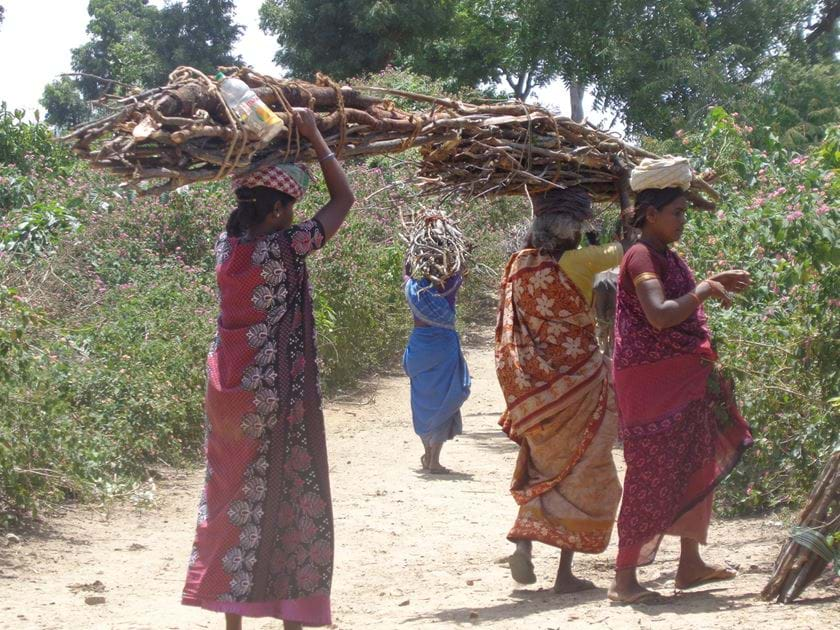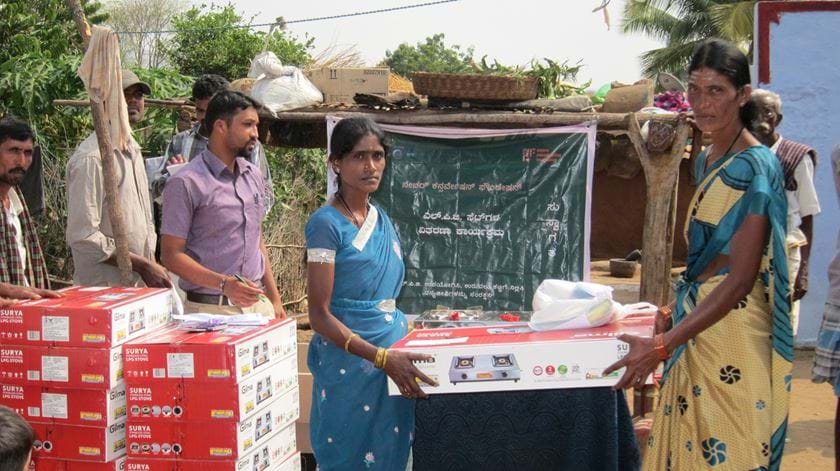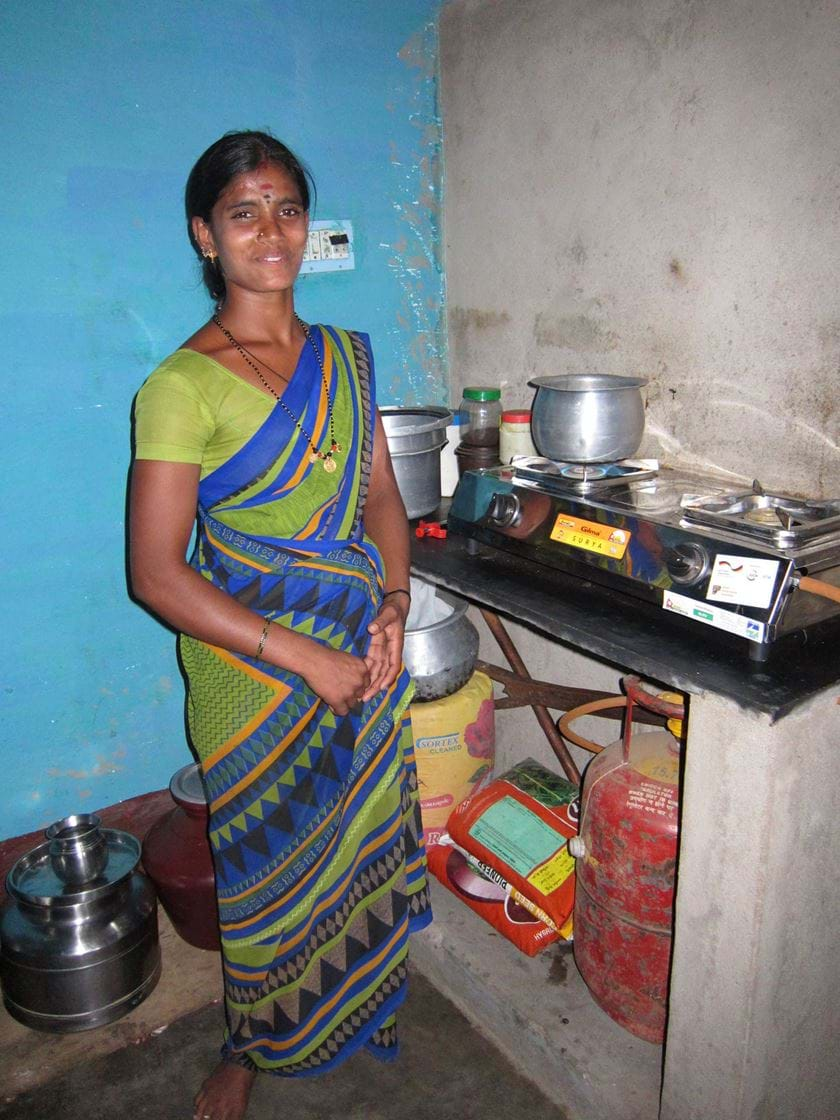Lighting the way for a brighter future
As was rightfully identified in numerous conversations at COP26, climate change is neither an isolated issue nor one that has a quick fix. We must examine human-wildlife coexistence, carbon emissions, deforestation, and numerous other intertwined issues in conjunction with each other to produce effective and efficient solutions.
Our Liquid Petroleum Gas (LPG) cookstoves project is a great example of this. In the Malai Mahadeshwara and Cauvery Wildlife Sanctuary landscape in the Indian state of Karnataka, communities on the forest fringes depended on firewood for cooking and heating water. But the trees they used for fuel are valuable elephant fodder species and are also an important carbon stock.

Using them as firewood produces a large amount of carbon dioxide and soot, contributing to climate change and causing severe lung problems for the women using it to cook with. To combat this, our partner, the Nature Conservation Foundation, has been providing forest fringe communities with LPG stoves that burn cleaner, more efficient liquid petroleum gas.

This has a multi-layered positive impact; it reduces the load on the forest, giving the slow-growing trees time to regenerate, which in turn means elephants are at less risk of going hungry. This leads to less incidents with the human population and also reduces the pollutants being released into the atmosphere.
Organisations and individuals must continue working together to unfold and address relevant links between environmental issues so that we can work towards achieving our united goal of combatting climate change through all means available to us. With well-designed programmes, the impact of conservation work is not isolated, but contributes towards protecting the world and its environment.

